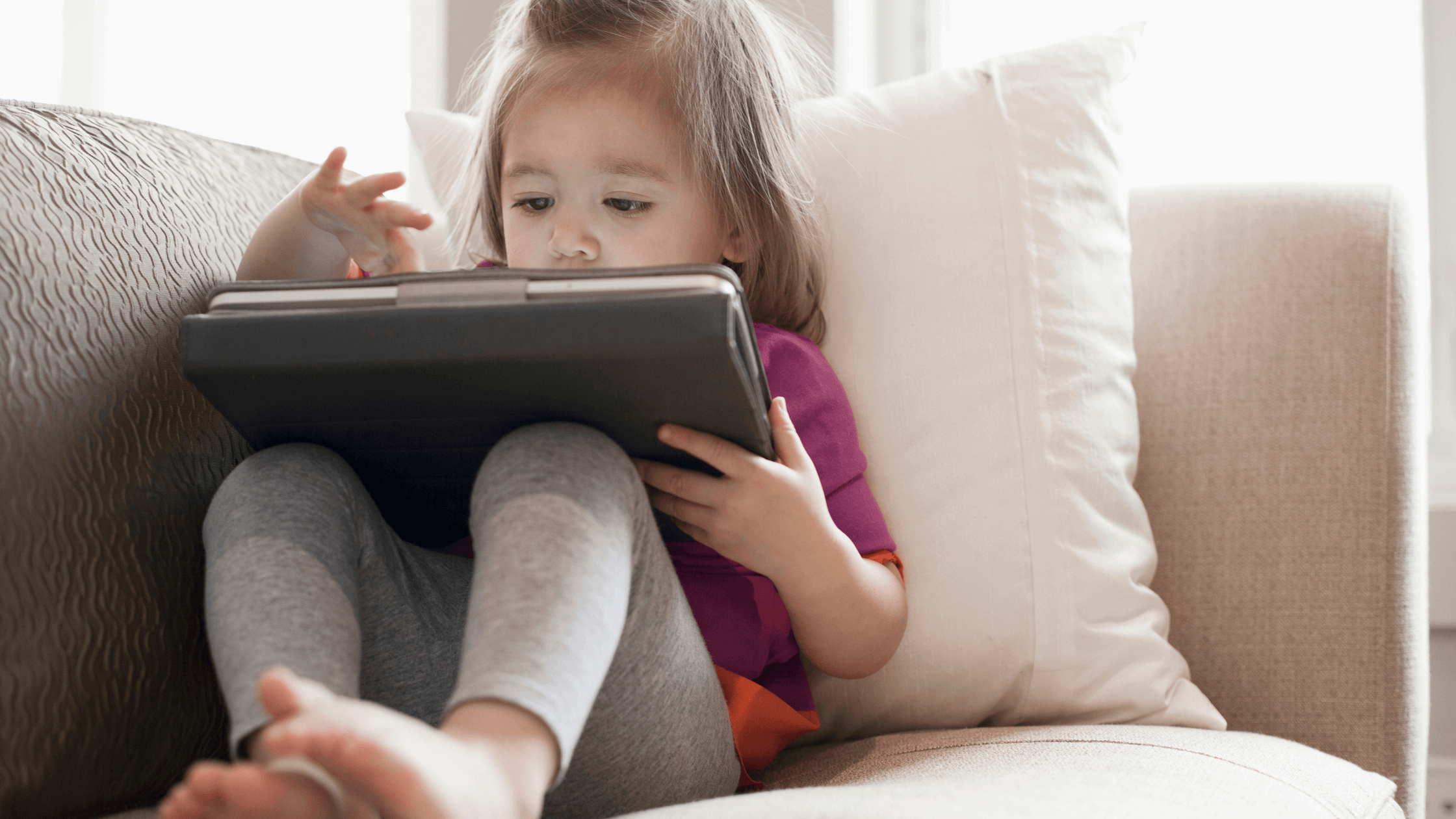
21 Apr How Much Screen Time Is Okay for Toddlers?
Screens are everywhere—phones, tablets, TVs, and even smart toys. And if you’re the parent of a toddler, you’ve probably asked yourself:
“Is a little screen time okay, or is it too much?”
It’s a common question, especially as digital devices become a bigger part of everyday life. While screens can offer entertainment—and even education—it’s important to understand how much screen time is appropriate and how to use it in a way that supports healthy development.
What Do the Experts Recommend?
The American Academy of Pediatrics (AAP) offers clear guidelines for screen use among young children:
- Under 18 months: Avoid screen time altogether, except for video chatting with loved ones.
- 18 to 24 months: If you choose to introduce screens, stick to high-quality programming and watch together to help your child understand what they’re seeing.
- 2 to 5 years: Limit screen use to one hour per day of high-quality content. Co-viewing is encouraged.
The focus isn’t just on how long, but how and why screens are being used.
Why Limits Matter
During the toddler years, your child’s brain is developing rapidly. Real-world experiences—like playing, reading, talking, and exploring—are essential for healthy growth. Too much screen time can interfere with:
- Language development
- Sleep quality
- Social skills and emotional regulation
- Physical activity and motor development
While screens aren’t inherently harmful, overuse can crowd out these critical, hands-on experiences.
Tips for Healthy Screen Time Habits
If screens are part of your routine, here are a few ways to make them work for your family, not against it:
- Choose high-quality content. Look for age-appropriate, educational programs developed with child development experts.
- Watch together. Co-viewing helps toddlers make sense of what they’re seeing and offers opportunities for bonding.
- Avoid screens during meals and before bed. Blue light can disrupt sleep, and mealtimes are valuable for family interaction.
- Be a role model. Your child is watching how you use devices. Modeling balanced screen habits matters.
- Prioritize real-life interaction. Even short moments of play, reading, or conversation have a powerful impact on development.
Making Screen Time Work for Your Family
Not every day will be perfect—and that’s okay. Some days, screens help you get dinner on the table or provide a much-needed break. What matters most is being intentional and mindful about how and when screens are used.
Screen time isn’t just about keeping kids entertained—it’s about shaping how they grow and learn. Setting thoughtful boundaries now can help your child build healthy habits for years to come.
Have Questions About Your Child’s Development?
Every child is unique, and we’re here to support you. Whether you’re concerned about screen time, sleep routines, or developmental milestones, our team is here to help.
Schedule your next visit today to talk about what’s best for your toddler’s health and development. Contact us here.

